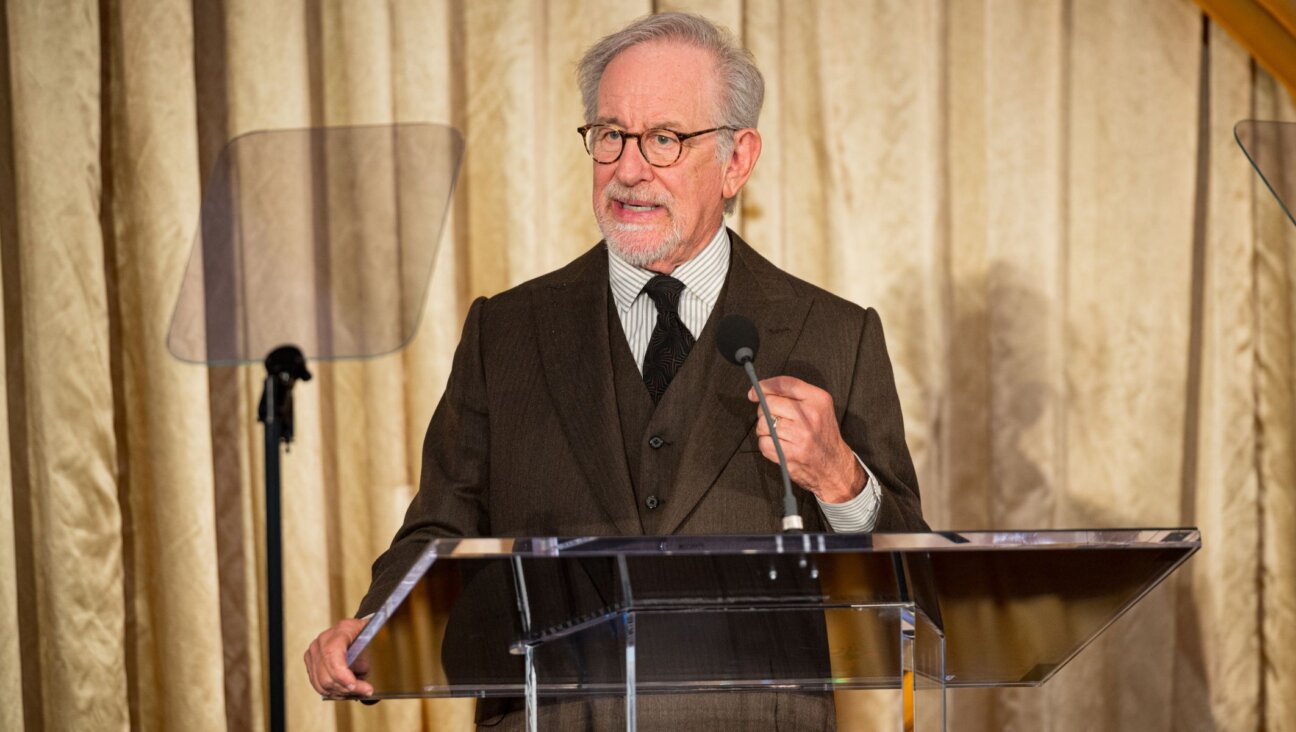Sale of Arrow Missile Systems Put on Hold
WASHINGTON — In response to negative reactions from the Bush administration, Israel is putting off attempts to sell the Arrow missile-defense systems to India.
Pro-Israel lobbyists have recently raised the issue with senior officials at the State and Defense departments and congressional staffers, according to Jewish activists in Washington, as well as congressional and diplomatic sources. Israel would require American approval before selling the Arrow systems to India, but sources say that Bush administration officials have made it clear to Jerusalem that they do not support such a deal. As a result, sources said, Israel is putting off any formal request.
“The issue is not on the agenda between the two governments,” an official Israeli spokesman said.
The Arrow is a centerpiece of American-Israeli strategic cooperation, having been developed, manufactured and tested chiefly by Israeli scientists, in cooperation with American colleagues. The cost of the project is being split between the two countries. Upon completion, Israel is expected to end up covering 60% of the price tag, which is estimated at more than $1 billion.
Officials at the State and Defense departments and the National Security Council are objecting to the sale on several grounds, chief among them the fear that such a move would further destabilize India’s relationship with Pakistan. Another worry is that India will divert sensitive Arrow technology to third parties, possibly countries hostile to the United States.
American officials reportedly told pro-Israel lobbyists that any sale would be premature because Israel has not yet manufactured enough Arrows to fill its rudimentary planned arsenal of three batteries. Only one of the two batteries that have so far been deployed is fully operational, according to Israeli sources. However, one pro-Israel lobbyist said, Israel would be ready to start exporting the system in 2007 and should not be precluded from arranging future deals before then.
According to Israeli media reports, the country’s military industry advised Prime Minister Sharon not to bring up the possibility of an Arrow deal during his visit this week to India. All the directors of Israel’s major military industries joined Sharon on his trip, including the head of Israel Aircraft Industries, which manufactures the Arrow.
According to Indian press reports, an Indian government delegation to Washington this week officially asked the Bush administration to approve an Israeli sale of the Arrow systems to New Delhi.
Richard Speier, a former Pentagon official and independent consultant specializing in nonproliferation issues, last week suggested a creative solution to address some of Washington’s concerns. Under his proposal, instead of selling the system to India, Jerusalem would agree to deploy Arrow batteries to India and staff them with Israelis. The arrangement would resemble the one adopted during the first Gulf war, when the American military operated Patriot missile batteries in Israel.
There is no indication that the idea is being taken seriously by any of the countries involved.
Despite the holdup involving the Arrow systems, Israel and India have forged strong military ties in recent years. Last month, after long delays, Washington approved the sale of three Israeli-made, Phalcon advanced airborne radar systems to India. The deal is expected to earn Israel about $1 billion.
In recent years, Israeli Aircraft Industries signed several large contracts with the Indian Air Force, including sales of unmanned aerial vehicles and laser-guided bombs, according to a report by the Washington-based Jewish Institute for National Security Affairs. Negotiations reportedly are in advanced stages for Israel to provide fire control systems and thermal imagers for the Indian army’s Russian-made T-72 tank fleet, Jinsa reported.
















